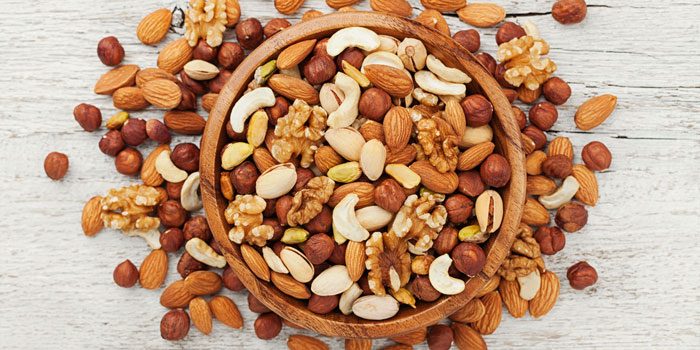Health Benefits of Nuts
Nuts are nutrient-dense foods that contain high levels of protein, fiber, vitamins and minerals. They can also help to reduce cholesterol and triglycerides, and increase insulin sensitivity.
There are many different types of nuts, from almonds and cashews to hazelnuts and peanuts. Each nut contains a different nutrient profile, but they all provide heart-healthy monounsaturated fats and some omega-3 fatty acids.
Protein
Protein in nuts is a very important nutrient for health, especially for vegetarians or vegans who may be concerned about protein intake. Nuts are a good source of protein because they are high in amino acids, which the body needs.
Almonds, Brazil nuts, cashews, hazelnuts, pine nuts and pistachios all contain high levels of protein in one serving. They are also rich in vitamin E and healthy fats.
Fiber
Eating a diet high in fiber helps you feel full, reduces your appetite and lowers your risk of heart disease and certain types of cancer. It also helps to maintain a healthy weight and can help you live longer.
Nuts are a great source of fiber. These nuts include almonds, cashews, peanuts and pistachios.
Most people do not get enough fiber in their diets, so it is important to incorporate a variety of high-fiber foods into your meals and snacks. Increasing your intake of whole grains, fruits and vegetables is an easy way to meet your daily needs.
Omega-3 Fatty Acids
Omega-3 fatty acids are polyunsaturated fats that are important for a wide variety of body functions. You can get omega-3 fatty acids from foods, including fatty fish and certain plant-based sources.
Omega-3s are different from other fatty acids because they contain more than one double bond in their chemical structure. They’re made up of alpha-linolenic acid (ALA), eicosapentaenoic acid (EPA) and docosahexaenoic acid (DHA).
These fatty acids help your brain and heart. They may also reduce inflammation and help prevent disease. They’re also good for your weight and skin health.
Vitamin E
Vitamin E is a fat-soluble vitamin that your body needs to help keep its immune system and blood cells healthy. It also works as an antioxidant to prevent damage caused by free radicals.
You can get vitamin E from a variety of foods, including nuts. Almonds, sunflower seeds, and peanuts are some of the best sources.
In addition to being a great source of vitamin E, nuts can also be a source of fiber and protein. So, eat more of them to reap all of these benefits.
In fact, one ounce of almonds can give you 7.3 milligrams of vitamin E, nearly 50% of the recommended daily value for adults. So, if you’re looking for a way to add more of this essential nutrient into your diet, almonds might be the perfect answer.
Minerals
Nuts are a healthy and convenient way to boost your mineral intake. They are packed with a variety of minerals, including calcium, magnesium, iron and zinc.
The Academy of Nutrition and Dietetics recommends eating nuts as a part of a balanced diet. They are also low in saturated fat, which can reduce your risk of heart disease.
They are a good source of vitamins E, magnesium and calcium, which help to keep blood pressure normal, bones strong and the heart rhythm steady. They are also a great source of folate, which is important for making new cells and preventing anemia.
They are also a good source of niacin, a type of vitamin B that helps the digestive system, skin and nerves work well. It has also been linked to a reduced risk of certain diseases, including cancer and heart disease.







